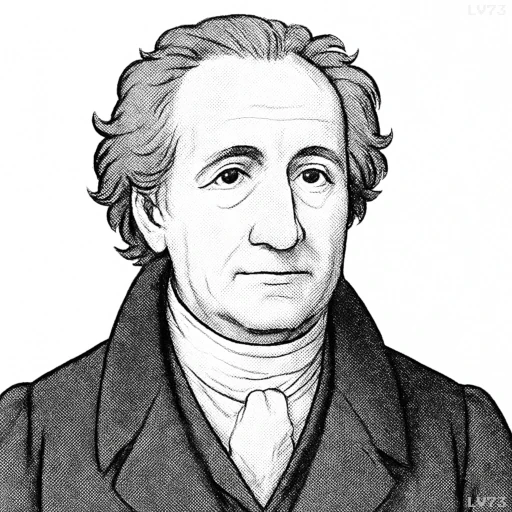“Every author in some way portrays himself in his works, even if it be against his will.”

- August 28, 1749 – March 22, 1832
- German
- Poet, playwright, novelist, philosopher, politician
table of contents
Quote
“Every author in some way portrays himself in his works, even if it be against his will.”
Explanation
Goethe suggests that an author’s personal experiences, values, and subconscious thoughts inevitably influence their writing, regardless of whether they intend to portray themselves. Even when an author attempts to create entirely fictional or objective works, their own perspectives, beliefs, and inner worlds inevitably seep into their writing. This idea reflects the notion that writing is a deeply personal act—an extension of the writer’s own identity, emotions, and worldview. Even if the author tries to distance themselves from the characters or the narrative, elements of their self are always present in their work.
Historically, this idea speaks to the Romantic belief in the connection between the artist and their creation. During this period, there was a growing recognition that art and literature were deeply intertwined with the individual’s inner life. Goethe, a writer and philosopher deeply concerned with the individual’s development and self-expression, recognized that an author’s personal truths were reflected in their writing, often unconsciously. This idea also aligns with the later psychoanalytic views, where Freud and others explored how an individual’s unconscious influences creative expression.
In modern contexts, this concept remains relevant in both literary studies and artistic creation. Today, many scholars and readers recognize that no matter how much an author may try to create a separate world in their works, there will always be reflections of their personality, experiences, and values. Authors may write about characters, places, or situations far removed from their own lives, yet they still imbue their works with aspects of their self, whether consciously or unconsciously. This also speaks to the idea of self-exploration through writing, where an author might unknowingly reveal more about themselves than they realize.
Goethe’s words remind us that creativity is inherently tied to the creator. An author’s work, no matter how fictional or abstract, will always carry elements of their personal identity, beliefs, and experiences. This is what makes literature so powerful—it’s a window not only into the worlds created by the author but into the author’s own soul as well.
Would you like to share your impressions or related stories about this quote in the comments section?


